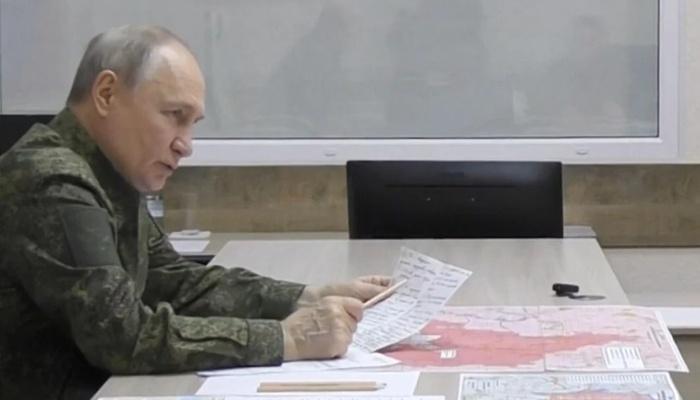Building Resilience: R&R comparation of practices between Kosovo and Italy
Despite the relevance other transnational challenges have acquired over the last years (namely, the Covid-19 pandemic and the current war in Ukraine), the phenomenon of violent extremism, radicalization and terrorism still represent a major challenge both to Europe and to Western Balkans.
As highlighted in the 2021 EU Terrrorism Situation & Trend Report , Europe continues to suffer the effects of jihadist radicalization and recruitment in prisons and the threat from released prisoners. In 2020, for example, several jihadist attacks in Europe involved perpetrators who were either released convicts or prisoners at the time they committed the attack, such as in the case of the of the 2020 Vienna incidents. At the same time, there is reason to believe that the socio-economic grievances linked to the pandemic might act as a radicalization multiplier, hence reinforcing the assumption that violent extremism will continue to be a significant threat to European society.
The threat violent extremism and terrorism pose to security is equally – if not more fundamentally – relevant for Western Balkans, and specifically for Kosovo. Since the beginning of the civil wars in Syria and Iraq and the establishment of the so-called Islamic State (IS) in 2014, almost 400 Kosovar radicalized individuals have left to join the ranks of IS as foreign fighters . The impressive wave of jihadist Foreign Terrorist Fighters (FTFs) in relation to the population of Kosovo (the highest ratio in the Balkan region) and the threat returnees pose to the fragile country situation prompted authorities to elaborate ad-hoc strategies. Over the last years, Kosovo has undertaken various preventive measures to avoid violent extremism to spread in society, while monitoring and dismantling several terrorist cells. At the same time, Kosovar authorities have implemented repatriation, disengagement and rehabilitation programs for Kosovar jihadist returnees to ensure their reintegration into society.
Despite the efforts into these programs, one of the major challenges the country faces today is the substantial lack of capacities of Kosovar Probation Services (KPS) in dealing with the risk of relapse of radicalized individuals. So far, in fact, investments and capacity building programs have mainly targeted the early phases of disengagement and reintegration of violent extremists, while less attention has been paid to the post-release phase and the risks it entails, such as lack of monitoring, marginalization by the local community, stigma and discrimination. The issue, far from being solely a Kosovar national matter, might also impact directly European and, more specifically, Italian security, as underlined also by the arrest of a Italo-Kosovar young girl recruiting jihadist women in November 2021.
Against this backdrop, the aim of this project, conducted jointly by CeSI (Centro Studi Internazionali) and the KCSS (Kosovar Centre for Security Studies) and funded by the Italian Ministry of Foreign Affairs, is to understand the main challenges faced by the Kosovar Probation Services in dealing with the reintegration of foreign fighters in society to help define better the design and implementation of trainings for first-line practitioners. In order to achieve this goal, the consortium conducted 4 focus groups and various interviews with different local actors – Kosovar Probation Services, Ministries, NGOs, and civil society organizations – to assess how R&R programs are currently organized in the post-release phase in Kosovo and the main challenges faced in their implementation.
In addition to this, given the importance that Italo-Kosovar cooperation on this specific issue might have, the consortium agreed to investigate also the Italian strategy for the reintegration and resocialization of violent extremists and jihadist returnees. This analysis has two goals. First, given the longstanding history of Italian authorities in fighting terrorism and political violent extremism, the Italian legislative example might offer fundamental insights to Kosovar counter-terrorism agencies. Secondly, the well-structured PCVE strategies Kosovar institutions have elaborated throughout these years might help fill the gaps of Italian practices.
On the basis of these premises, the present report gathers the results of the project and the analysis conducted on this issue. In order to propose an in-depth overview of the topic, the report is composed of two chapters. The first chapter, edited by Claudia Annovi with the support of Aline Blanchard, focuses on Italian current legal framework regarding PCVE strategies, counter terrorism and, more specifically, the management of jihadist returnees. This section includes an analysis of the main challenges and gaps of Italian strategy on this issue based on interviews conducted with two Italian experts. The second chapter, edited by Skender Perteshi, delves into Kosovar approach to R&R programs of foreign fighters and the main challenges faced by Kosovar Probation
Services on the basis of the interviews and focus groups conducted on the field in the first months of 2022. Finally, the conclusion proposes a comparative analysis of the two examples and proposes some recommendations.





